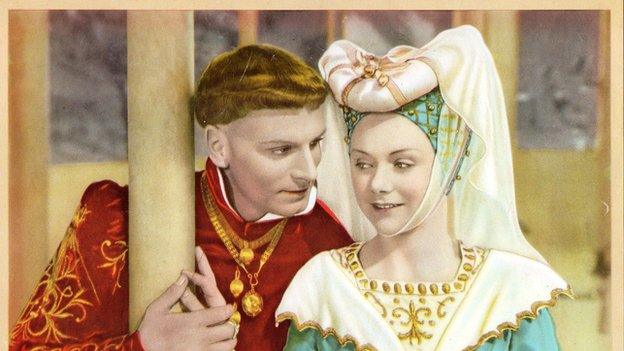Agincourt battle recreated as model by Nottingham brothers
- Published
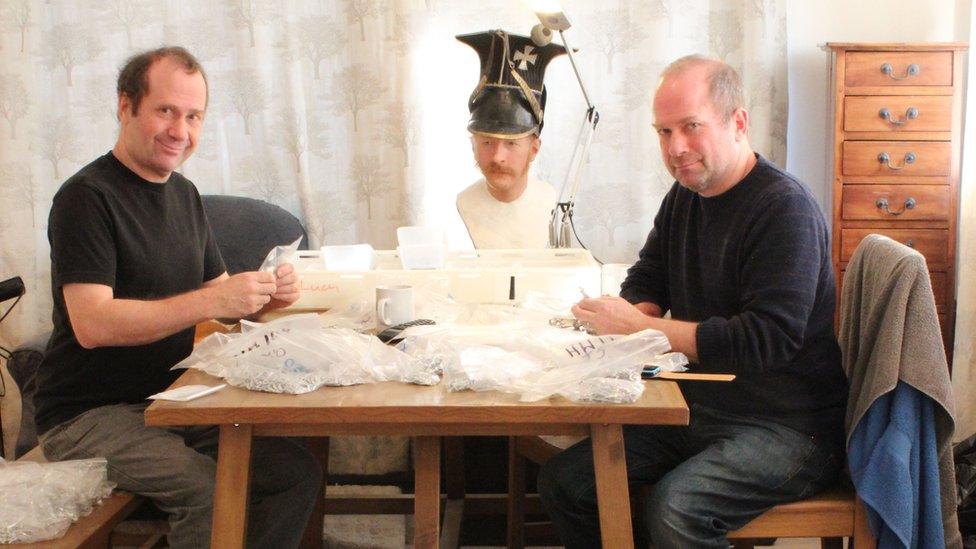
Alan (left) and Michael Perry (right) have been making models since they were boys
Two brothers have created a 3D miniature model of the Battle of Agincourt ready for the event's 600th anniversary.
Michael and Alan Perry's diorama, which includes 4,300 figures representing English, Welsh and French soldiers, was commissioned by the Royal Armouries.
The Nottingham pair said they craft the inch-high (28mm) models from putty with dental tools, needles and scalpels.
The piece will be on show at the Tower of London from 25 October.
The commission came after a friend, a model terrain maker, got in touch because he knew the brothers already had a range of Agincourt figures.
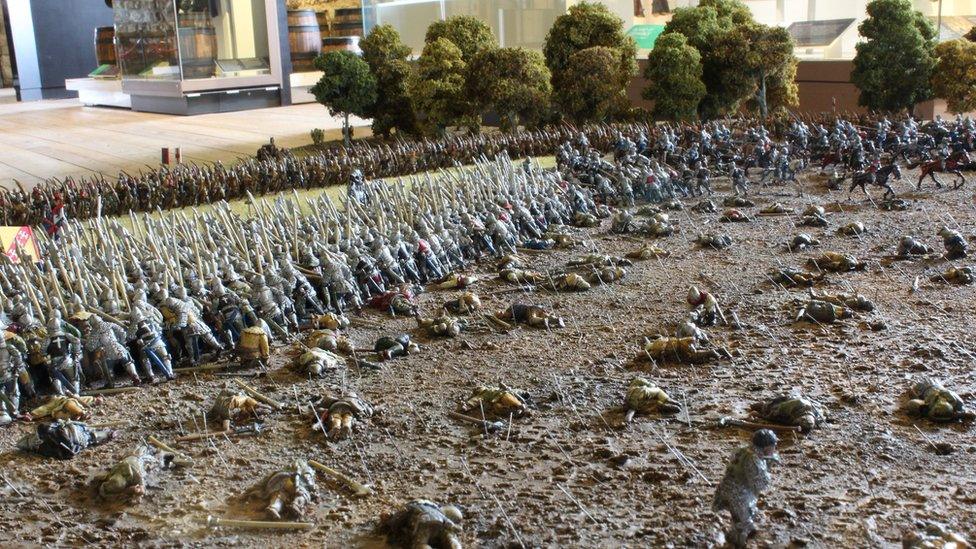
The model shows in detail what happened during the battle when English and Welsh soldiers defeated the French army
"[We had] about 100 figures but we had to make more additions," said Michael Perry.
"[They included] specific figures, loading and unloading carts, and [we also created] little vignettes which would make the diorama sing and get kids interested in little things they can see on the table top."

Battle of Agincourt (25 October 1415)
Henry V revives war with France and raises large army to attack port of Harfleur
The siege takes three months and his army becomes ill with dysentery
Henry marches remainder of his army to Calais 270km (167 miles) away
Larger French army intercepts him near the River Somme
Henry positions army between two woods to prevent encirclement
French army charges but becomes bogged down in muddy fields
Massive French casualties from arrow storm and hand to hand fighting
French retreat and Henry's army completes march to Calais

The brothers, originally from London, loved modelling clay as youngsters and were both employed by Games Workshop, a maker of fantasy tabletop war games.
The duo recently left the company after a career that saw them visiting New Zealand to make Lord of the Rings figures.
Alan Perry said: "It kind of feels like we've been on holiday [in the past year] because we've been making what we want to make."
Michael Perry only has one arm which makes the detailed collection even more remarkable.
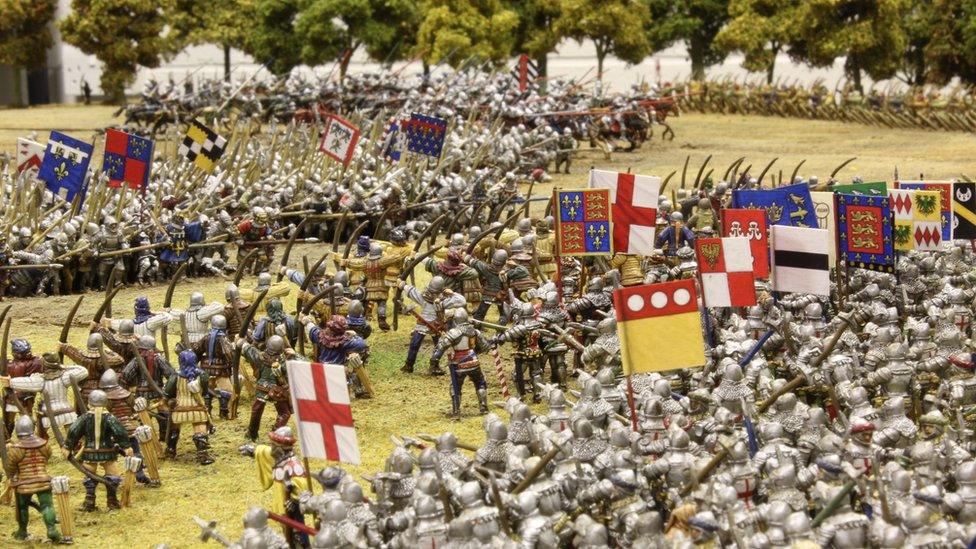
A small team individually painted each figure before they were positioned
He lost the limb during a re-enactment in France, in 1996, after the cannon he was loading misfired.
"[My arm] didn't go flying off, it made a big mess but they had to chop it off," he said.
"Your brain just switches over from one side to the other [when making models].
"I got up to speed after a few months."
The exhibition is at the Tower of London from 25 October until January.
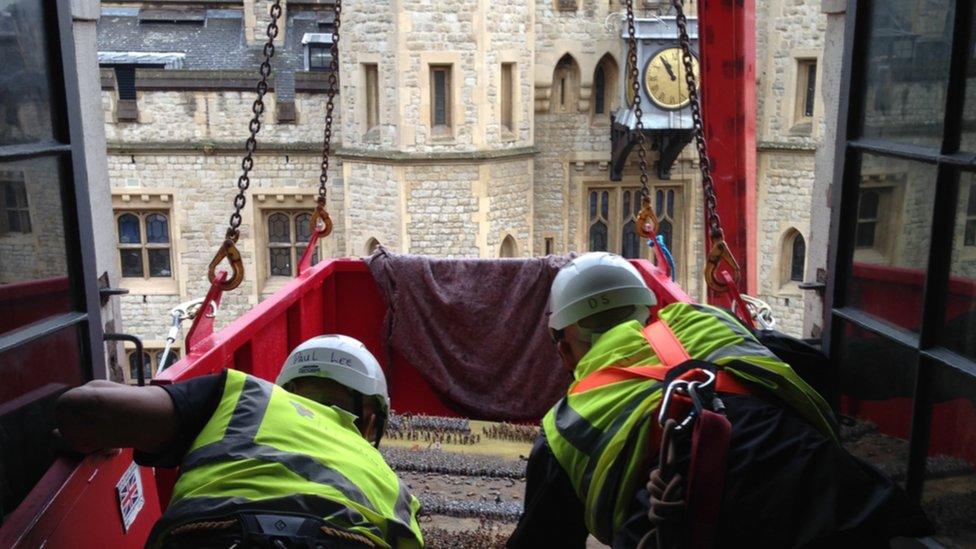
The diorama was winched into a room at the Tower of London ready for the exhibition
- Published21 September 2015
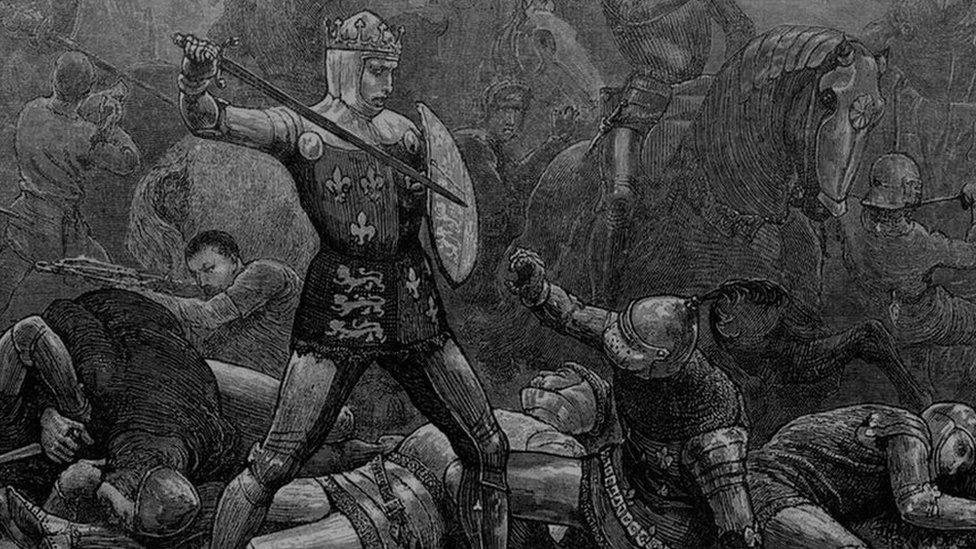
- Published18 May 2015
